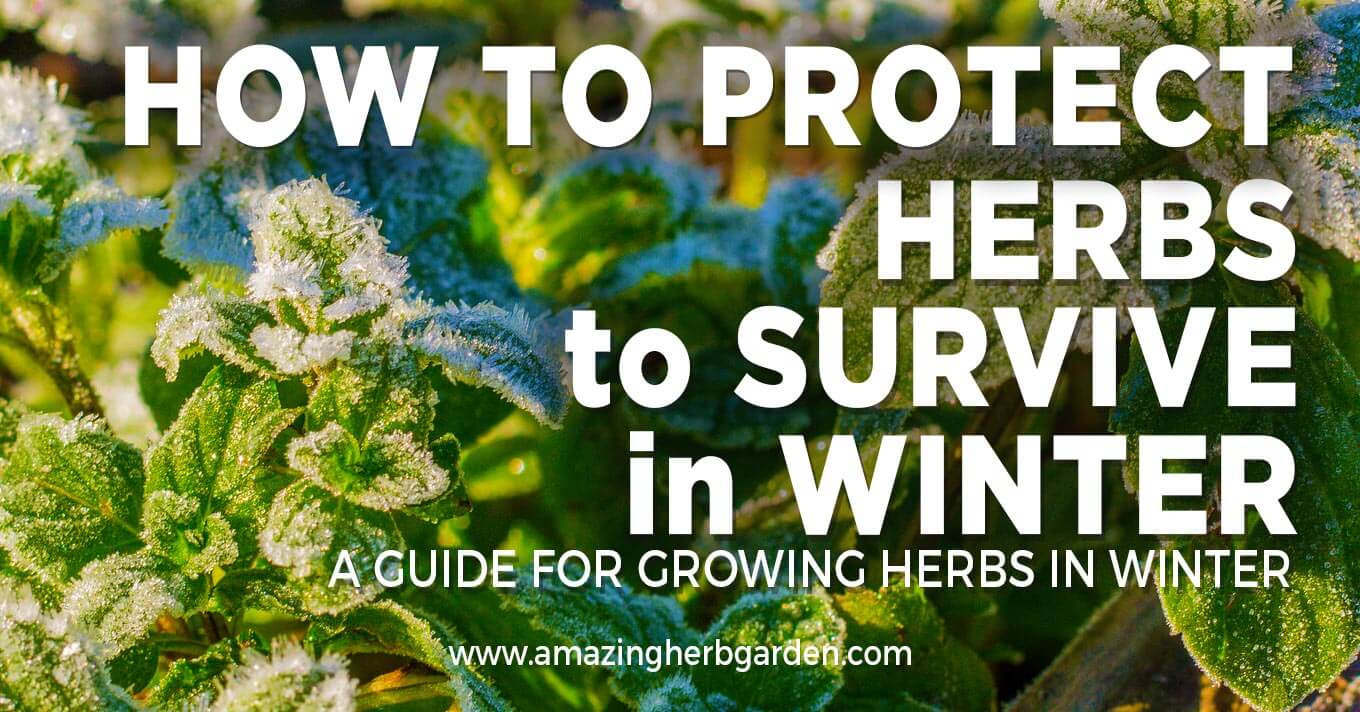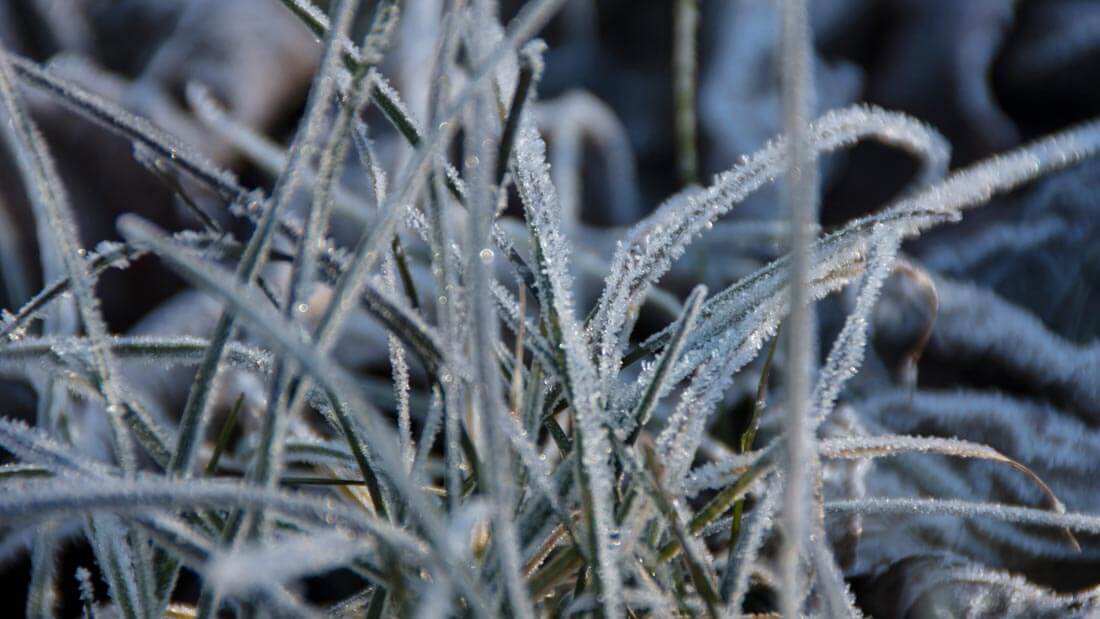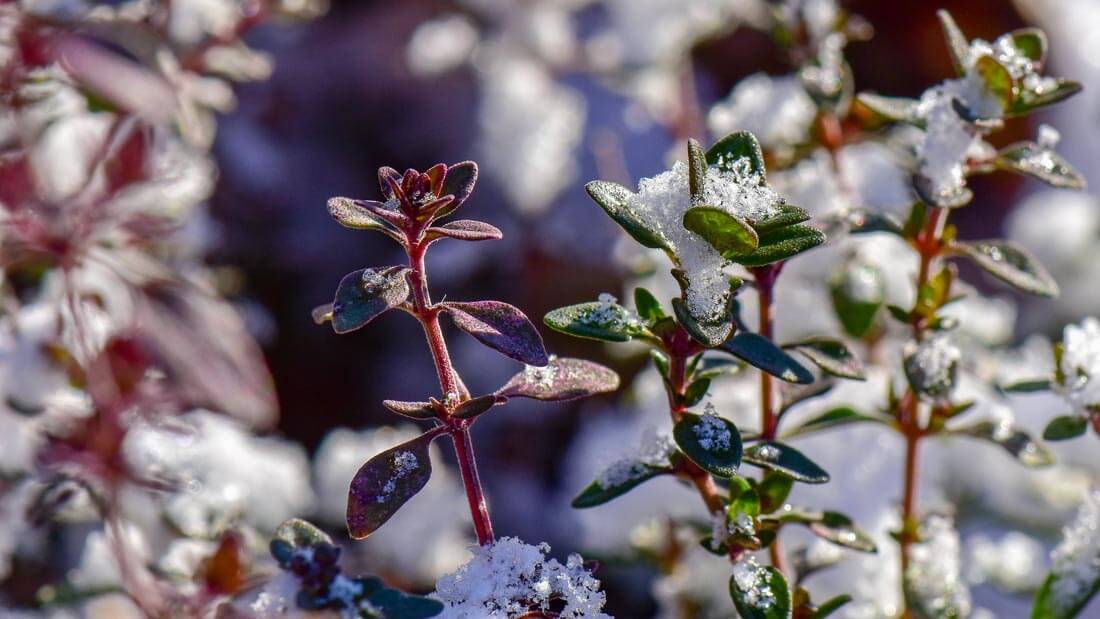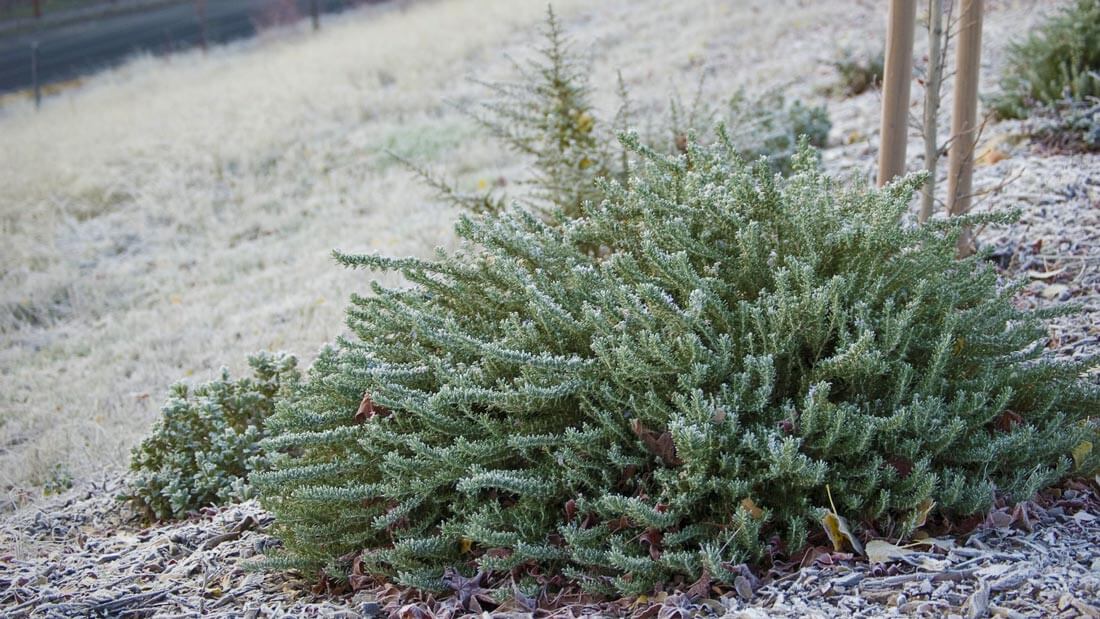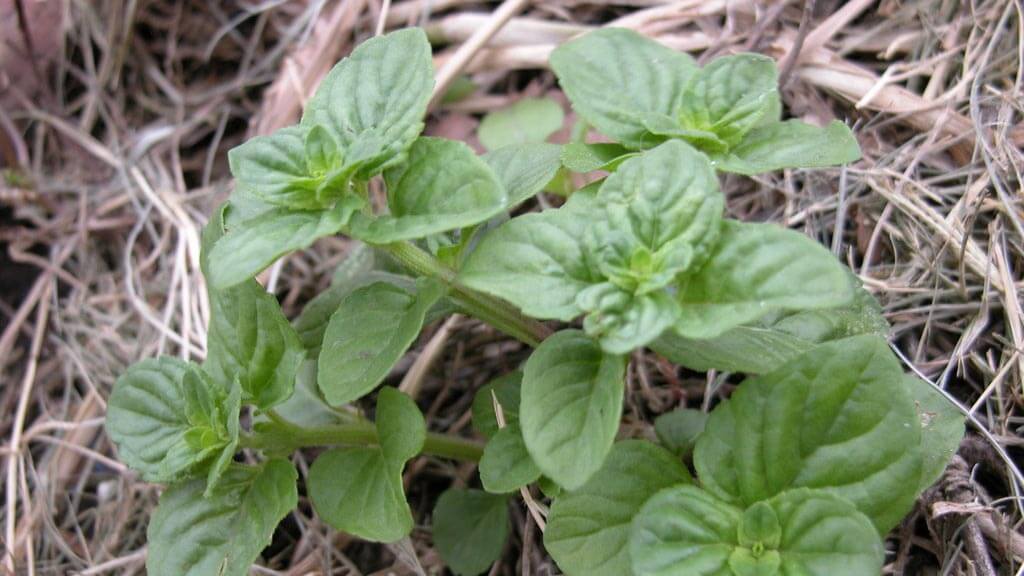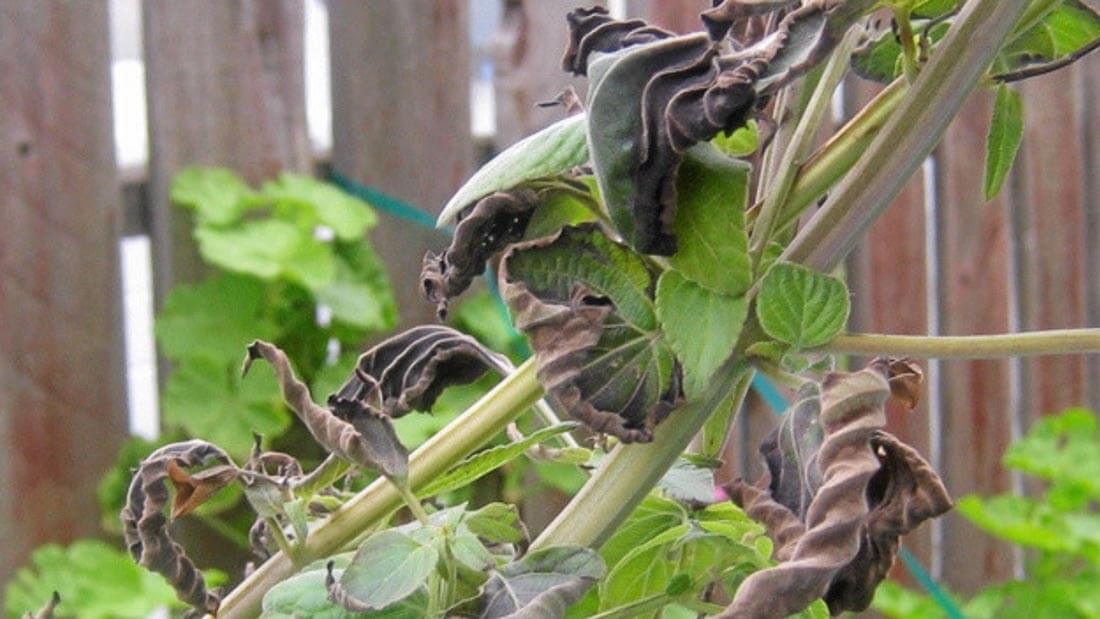How to Protect Herbs from the cold and help them Survive in Winter.
A guide for growing herbs in winter
In this article I will explain what herbs can survive outdoors in winter. I will show what you can do to protect the herbs in ground and in containers from the cold and help them survive in winter time.
Here is what you can find in this article:
- Will herbs survive the cold outdoor temperatures in winter time?
- Which or what herbs are winter hardy then?
- Do all herbs grow back after winter?
- How to protect outdoor herbs in winter?
- Can I grow my herbs survive winter outdoors in pots on the balcony?
- Why do perennial herbs in containers require extra protection in winter?
- Possible techniques to protect herbs in pots
- How to recognize that herbs are damaged by cold or frost?
1. Will herbs survive the cold outdoor temperatures in winter time?
When people ask me whether herbs will survive winter, or whether herbs can grow in or through winter, I have to give them the answer:.. it depends.
When I get asked the question whether herbs will grow in winter, if herbs will die in winter or if herbs can stay outside in winter, then again I have to answer… it depends.
It depends on your specific situation.
When you are keeping plants and herbs outdoors, a correct selection of plants suited to your own climate is an important step to the successful outdoors overwintering of your plants.
The colder your climate, the more your plants run the risk of not surviving the winter outdoors.
The plant hardiness zones map will give you the hardiness zone of your location and also an indication of what plants you can grow in our garden based on the average of lowest temperatures in your area.
When you want to figure out what herbs will survive winter at your location, you have to compare the hardiness of the different herbs with the hardiness of your zone.
Depending on your climate some herbs may even grow as well in winter.
2. Which or what herbs are winter hardy then?
When we order the herbs according to their capacity to survive the effects of cold weather, (ordered from very winter hardy to less winter hardy/tender herbs):
- Catnip, Chives (hardiness zone 3)
- Mint ((hardiness zone 4)
- Thyme, Lemon Balm, Oregano, Sage, Angelica (hardiness zone 5)
- Parsley, lavender, winter savory (hardiness zone 6)
- Marjoram (hardiness zone 7)
- Bay laurel, Lemon Verbena, Rosemary (hardiness zone 8)
For more explications on the plant hardiness zones, check out my article: How to select correct herbs for your outdoor herb garden.
You need to make sure that your outdoor plants and herbs will tolerate the winter temperature conditions in your area.
You do this by comparing the hardiness zone of your plant with the hardiness zone of your area.
I live in Belgium and in plant hardiness zone 8, this means that all of the herbs form hardiness zone 8 and below should survive the winters in my location.
So yes, herbs can survive outside in winter, if you keep herbs that are fit for your location.
3. Do all herbs grow back after winter?
You know that herbs can be either annuals or perennials.
Perennial herbs such as Sage, Thyme, Chives, Mint and Lavender, can overwinter and grow back or continue to grow in spring and this for several years.
Annuals like Cilantro, Chervil, Dill, Parsley and Basil will have a hard time to survive the outdoor winter and need to be replanted every year in spring time.
When planning and planting your outdoor herb garden it is essential to know which herbs are annuals and perennials. The perennial herbs that survive the winter in your area (check the plant hardiness) will die back to the ground in winter to the ground and regrow, sprout anew after winter time.
If a perennial herb isn’t winter hardy in your area, you can still grow it in pots, which needs to be protected from the cold in winter as mentioned below.
Some perennial herbs are what we call evergreen perennials, which form woody stems and stay green all winter too. These evergreen herbs, such as bay, lavender, rosemary and thyme are great to plant in your winter garden landscape.
4. How to protect outdoor herbs in winter?
You can also protect outdoor herbs in the garden from the cold and help them survive in winter by applying some extra protection.
A first basic method is to protect the herb and its roots in the ground by providing some insulation from the cold by covering the herb with straw or coarse mulch.
Secondly, if you’re not sure the herb can survive in your winter climate in the ground, you can always transfer them to pots and move them to a protected spot indoors or in a greenhouse and transplant them back into the ground when spring arrives.
5. Can I grow my herbs survive winter outdoors in pots on the balcony?
Although most perennial herbs prefer a nice spot in the garden, it is always possible to grow these herbs in containers.
As a general rule, you can easily keep herbs in pots outdoors when their hardiness is two zones different from the hardiness zone you live in. But again, that is a general rule, you should try it out and adapt to your specific situation.
For example, I live in plant hardiness zone 8 and I will be able to keep herbs of hardiness zone 6 in containers relatively easy.
Herbs in pots are more cold-sensitive but can survive winter when you apply some additional methods of protection. Basically we need to pay attention to avoid the soil in the pots from freezing solid and to dry out totally.
Some cold-hardy herbs can even continue to grow and produce tasty foliage despite the cold winter temperatures when some protection is given or when they are put indoors.
6. Why do perennial herbs in containers require extra protection in winter?
Perennial herbs have a harder time to survive in pots than in full ground. The fluctuations of the air temperature around the pots are much bigger than the temperature fluctuations in the ground.
In the soil, the roots of our plants are protected by the relative warmth of the earth, but in pots the roots of the plants are very vulnerable to frost and freezing cold winds.
The larger the container, the greater the chance of survival, because a larger volume of soil creates a better insulation for the roots, protecting them from freezing.
In general you could say that plants and herbs in pots typically do not survive winter outdoors easily.
It is in the context of freezing temperatures important to realize that often perennials in pots do not survive because there is too much water in the pot. If sufficient drainage is no longer possible, because the drainage hole at the bottom is frozen, the roots will sit in freezing cold water. This waterlogged soil has no more air and thus oxygen available for the roots. After a while this leads very often to the death of the plant.
When water in pots or wet soil in pots will freeze, it will also damage your containers that may crack overtime.
When you keep your containers outdoors, it is important to make sure that they are protected by a rain cover. Some people put the containers on the side to avoid water accumulation.
7. Possible techniques to protect herbs in pots
The best method depends on your climate and personal situation. Trying and adapting is the best way to find out what is best for your own situation.
- The first method is to overwinter your herbs in a heated greenhouse or a warm place indoors. Usually the plant will even continue to grow if the circumstances allow it.
- If you want your perennial herbs to bloom, take into account that a period of dormancy in a cold environment is required. You can relocate the pots to a cool greenroom, a sheltered balcony or porch, or an unheated garage that can serve as a conservatory.
- If herbs in containers can overwinter outdoors in your climate and you plan to overwinter them outside, you can take some extra protection measures too.
-
- You can put the container-grown perennials together in a sheltered area around the house or against the wall of the house. This is very often an area covered from the cold wind, which should be warmer.
- Pots can be covered with insulating material and you can even wrap the pots themselves with an insulating material (textile, bubble wrap or other) for extra protection. This insulation may give two to three degrees extra warmth that may mean the difference between survival or freezing. Just make sure make sure you don’t cover the compost surface with your insulation or the moisture will be trapped and your plants may rot.
- Avoid overwatering by weighing the pots and give water in the morning and not in the evening as the water may freeze during the night.
- Raise the containers a little bit off the ground on little blocks or pot feet, to allow the water and rain to drain freely. We absolutely want to avoid excess water in the pot to freeze.
- Check your pots regularly and inspect them to see if you need to take extra measures.
8. How to recognize that herbs are damaged by cold or frost?
When a herb is outside in the freezing winter cold, and the temperatures, the water in the plant cells will freeze too. The formed crystals cut the cell membranes of the plant. This results in fluids leaking from the cell, and this will lead to the death of the plant.
The visual symptoms of frost are often:
- brown spots and leaves due to tissue browning
- blackening of leaves
- bleached leaves
- wilting or curling of leaves and stems.
The damage is mostly visible in the growing points. If the herb isn’t completely damaged but only the tips (for example after a cold snap), it is best to prune back and to remove the damaged tissue, in the same way as you were harvesting.
Join the community
If you are looking to grow an amazing herb garden, I strongly recommend signing up to our community and gain access to our FREE downloads and regular updates. We want to ensure your success by sharing our tips and tricks with you for growing herbs.
Leave us a comment
If, after reading the information above, you still have a question that remains unanswered, then let me know by mail or in the comments below.

